Netflix + Romanian New Wave = ♥
On a simple search, it’s amazing how many Romanian titles (from rather niched art films, such as Yet to Rule, to money-grab productions, like 5Gang) can be found on Netflix. Beyond the frivolous pleasure of watching a Romanian film on such a platform, I made a minimal selection of films representative of the New Romanian Wave – a kind of must for every cinephile who wants to reflect on contemporary Romanian cinema (and probably some of my favorites; hellas!, Police, Adjective is not in their collection).
The New Wave formula seemed to stick around for quite a while – both as an economic and aesthetic solution (film shoots taking place in few locations, with a minimum of resources and a few characters, the use of long shots and static camera); the result was an unexpected success around festivals and film critics. Almost two decades after the release of the first films (Stuff and Dough, to be precise, it’s unanimously accepted as a first film of the New Wave), there are still films that adopt some of the current’s clichés (Marita, dir. Cristi Iftime district; Zavera, dir. Andrei Gruzsniczki etc). Despite their prolific nature, few of them manage to rise to the level of their predecessors. One of them, the most recent example on the list, is Pororoca (dir. Constantin Popescu). On the other hand, we should applaud the effort of directors who try to transgress the formula entirely or partially, slipping into more popular or light genres (Paul Negoescu, with a sweet and tender humour, a twist of buddy-films; Andrei Creţulescu, with Charleston, a hyper stylized comedy-drama about two men who love the same woman). Anyway, the death or resurrection of the New Wave can be discussed in more detail at all times – the list below is just meant to celebrate it in the simplest way possible.
- Stuff and Dough (dir. Cristi Puiu, 2001)
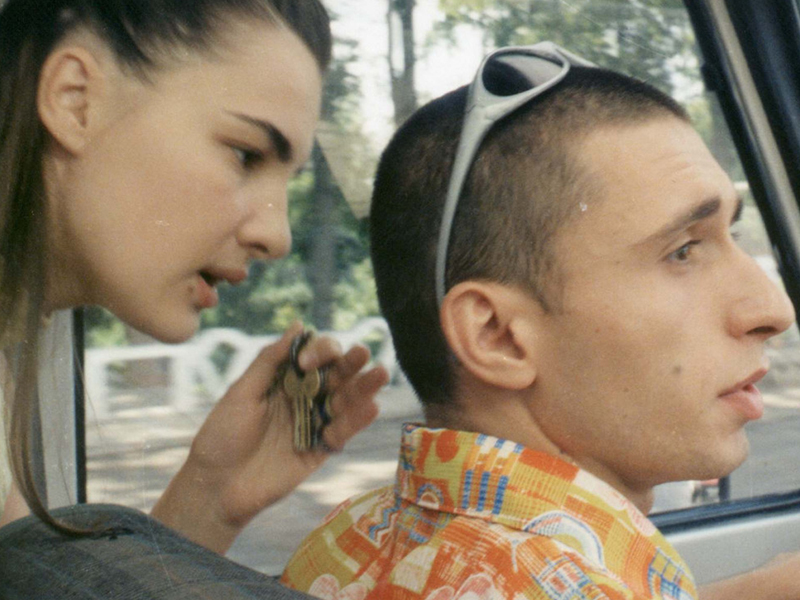
Made by Cristi Puiu and screenwriter Răzvan Rădulescu as a road movie (about 80% of the film takes place in a commercial van, with a station point that always looks at the characters from behind and on their side), Stuff and Dough came with several new remarkable elements – on the one hand, as Ovidiu Șimonca also noticed, there was the language, the way characters spoke in the film – freely, on the verge of improvisation, usually just small talk, in a jargon that was once considered unacceptable. On the other hand, as Andrei Gorzo comments in Things That Cannot Be Said Otherwise, it wasn’t the language that was shocking, rather the way Puiu revolutionized the perception of time in Romanian cinema. In other words, the characters’ small talk, during the 4-hour ride from Constanta to Bucharest, while crossing villages and driving on dirt or paved country roads, a little over the legal speed, had nothing extraordinary; it was just the things people talk about to pass the time. The viewer could experience, together with the characters, in real time or what felt like time-compressed, the journey of the three – and became this way a sort of participant. Puiu used this type of subjective false angle in other films as well, always with a different purpose – for example, in Sieranevada, this angle is used, from one point, to show the perspective of the deceased man, who wanders around his loved ones and witnesses his own requiem.
From a narrative point of view, Stuff and Dough has several nuanced elements – a hint of a thriller appears in the storyline, but it’s never made clear, and the objective, which seems simple and impossible to miss out (delivering some medical supplies to Bucharest), suddenly turns into an adventure where the characters either behave like adults or act childish. In the end, it’s all about Ovidiu (Alexandru Papadopol), nicknamed Ovaru (what an ironic way to undermine the masculinity of a man in the making), growing up.
- Self-Portrait of a Dutiful Daughter (dir. Ana Lungu, 2017)
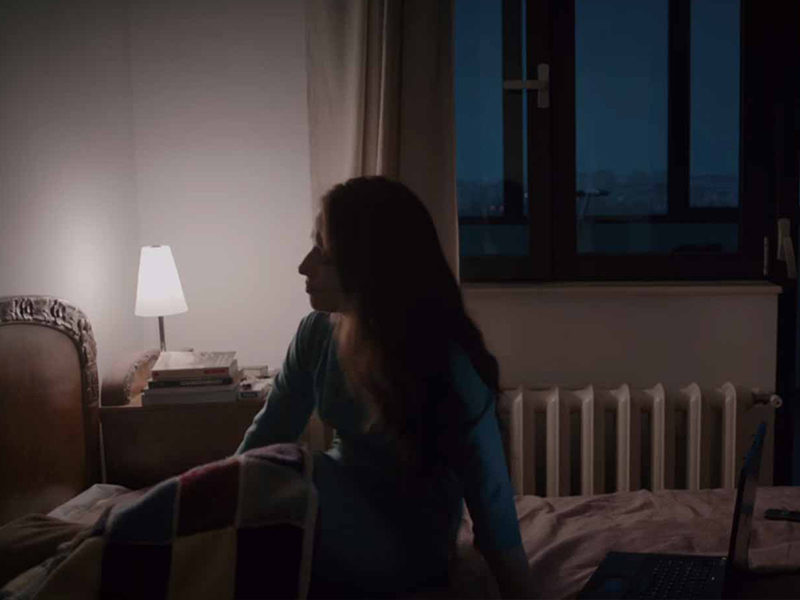
Both Self-Portrait of a Dutiful Daughter and One and a Half Prince are about a symbolic Peter Pan syndrome: adults who are still children, who can’t find their place anywhere and try to somehow reconcile with adulthood. These searches, which definitely contain some kind of self-confession or self-portrait of the director, are so tender and relatable because they talk about feminine experiences, and here Romanian cinema still has enormous gaps.
Self-Portrait of a Dutiful Daughter, just as Andra Petrescu notices here, is about an emancipation of the protagonist, Cristiana (Elena Popa) – from the paternal figure, as well as the lover, both men with more power. Now that she finishes college and finds all by herself in an apartment, she needs to decide on a path for which she is not yet prepared and doesn’t know how to follow. The urge to have a dog, a desire that Cristiana repeatedly expresses, is actually the idea of having something (at least for once) of hers, of making a decision that is exclusively hers.
- Pororoca (dir. Constantin Popescu, 2018)
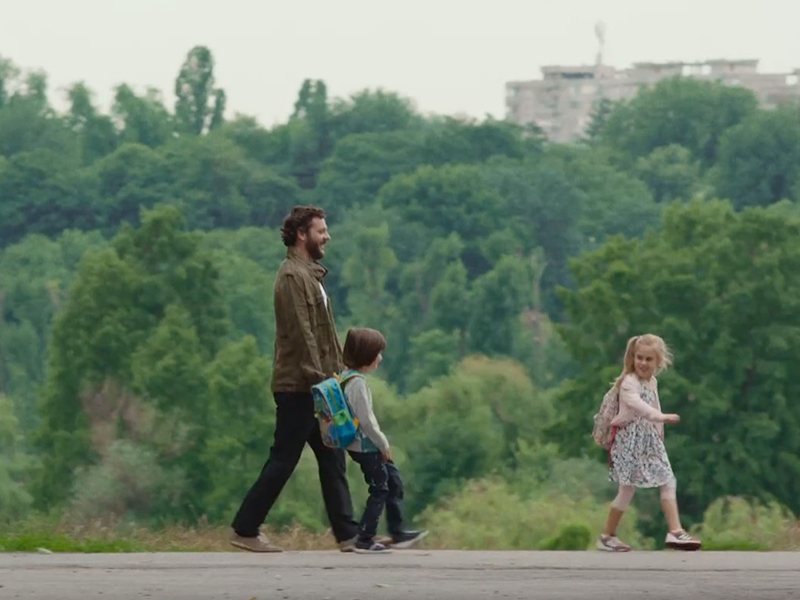
Pororoca could easily have passed as a brutal false observation on the physical and moral degradation of a man whose daughter simply disappears one day, after he takes his eyes off her for one mere moment. But Constantin Popescu does much more than that – once the protagonist isolates himself from the family, the film soundtrack is populated by all sorts of noises and ghosts that seem to come right from the protagonist’s mind.
Why do I recommend it? 1. For the excellent long shot of the child’s disappearance (18 minutes) – (merritt goes to DoP Liviu Marghidan) – where, as in Blow-Up, the viewer knows that one of the children is going to disappear, but, like the father, doesn’t make out the exact moment of the glitch, because it’s covered by the noise and movement all around. 2. For the performance of Bogdan Dumitrache – certainly the most spectacular transformation in Romanian cinema so far.
- 12:08 East of Bucharest (dir. Corneliu Porumboiu, 2006)
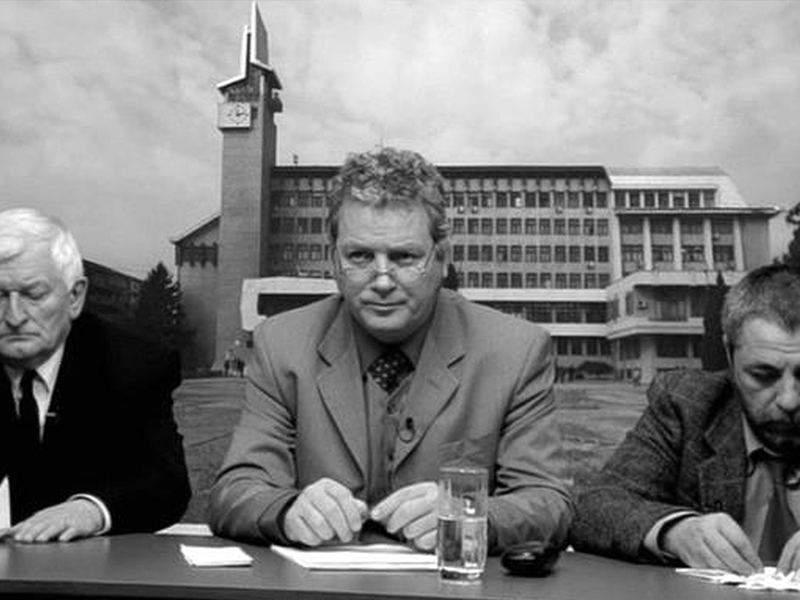
Mostly perceived as a social comedy (several people from Vaslui go to an obscure local talk show to debate various scenarios about the 1989 Revolution, in an effort to show that they actually participated at the historical event), 12:08 East of Bucharest is actually a great film about cinema. In fact, there are two visions that are in conflict: there’s the static part, where the camera follows the ordinary lives of the protagonists, in long shots; and there’s the part where the show’s cameraman, driven by the “latest style of making movies”, takes the camera and starts filming handheld; all his mishaps are comical (after setting the camera on a tripod, he seems to get bored at one point of a dull speech about Plato and lets the picture slowly go down).
12:08 East of Bucharest is a forerunner of Porumboiu’s comic method (partly taken from Milos Forman) – which he also uses in The Treasure – the humor comes from language, but also the way the characters move within the shot (starting from an alignment by height, up to small funny-annoying gestures, such as scribbling a sheet of paper).
- If I Want to Whistle, I Whistle (dir. Florin Șerban, 2010)
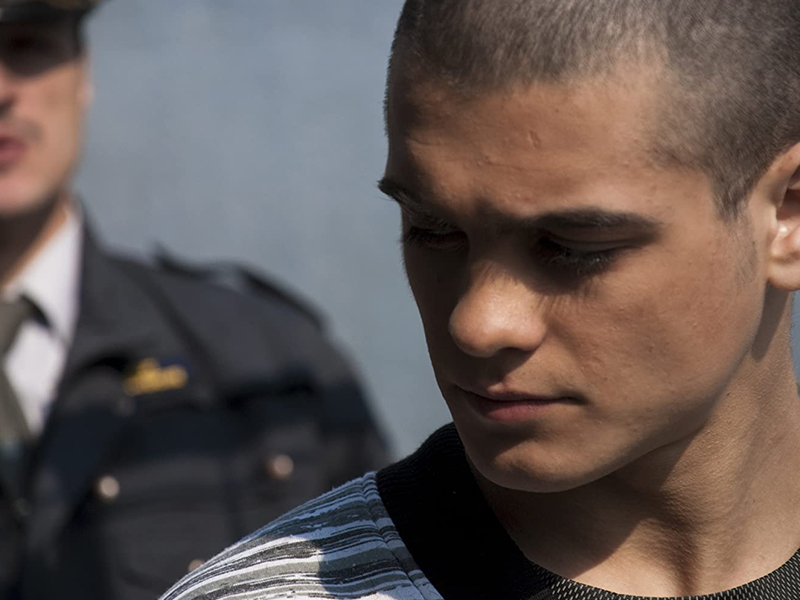
Perhaps If I Want to Whistle, I Whistle is a less predictable choice than the other films on the list. However, after watching it for the third time, one can see that what it seems like a simple problematic character (a teenage prisoner is to be released from prison in the next few days) is actually impeccably executed. Silviu (George Piștereanu) has an eye twitch – he’s a repressed little brute – he tries to avoid getting conflict with the other detainees and is rather kind hearted (since the beginning of the film, he cleans up good for the meeting with his younger brother, whom he loves a lot).
It all starts with that – his mother, who moved to Italy 8 years ago, returns to Romania and wants to take the little boy with her (who, of course, was raised by Silviu alone). Feeling helpless, the protagonist starts taking the wrong path, going from bad to worse, ruining his release at every step. Apparently, it’s the kind of stratagem where the character is allowed to do anything just because he has a good core (even the complete wreckage he causes can arouse empathy), but the tragic situations are very well played and handed out. As a final act of rebellion, there’s quite a paradox in his romantic gesture of taking his hostage out for coffee, where he kisses her briefly on the lips and then stays quiet feeling embarrassed.
Journalist and film critic, with a master's degree in film critics. Collaborates with Scena9, Acoperișul de Sticlă, FILM and FILM Menu magazines. For Films in Frame, she brings the monthly top of films and writes the monthly editorial Panorama, published on a Thursday. In her spare time, she retires in the woods where she pictures other possible lives and flying foxes.
